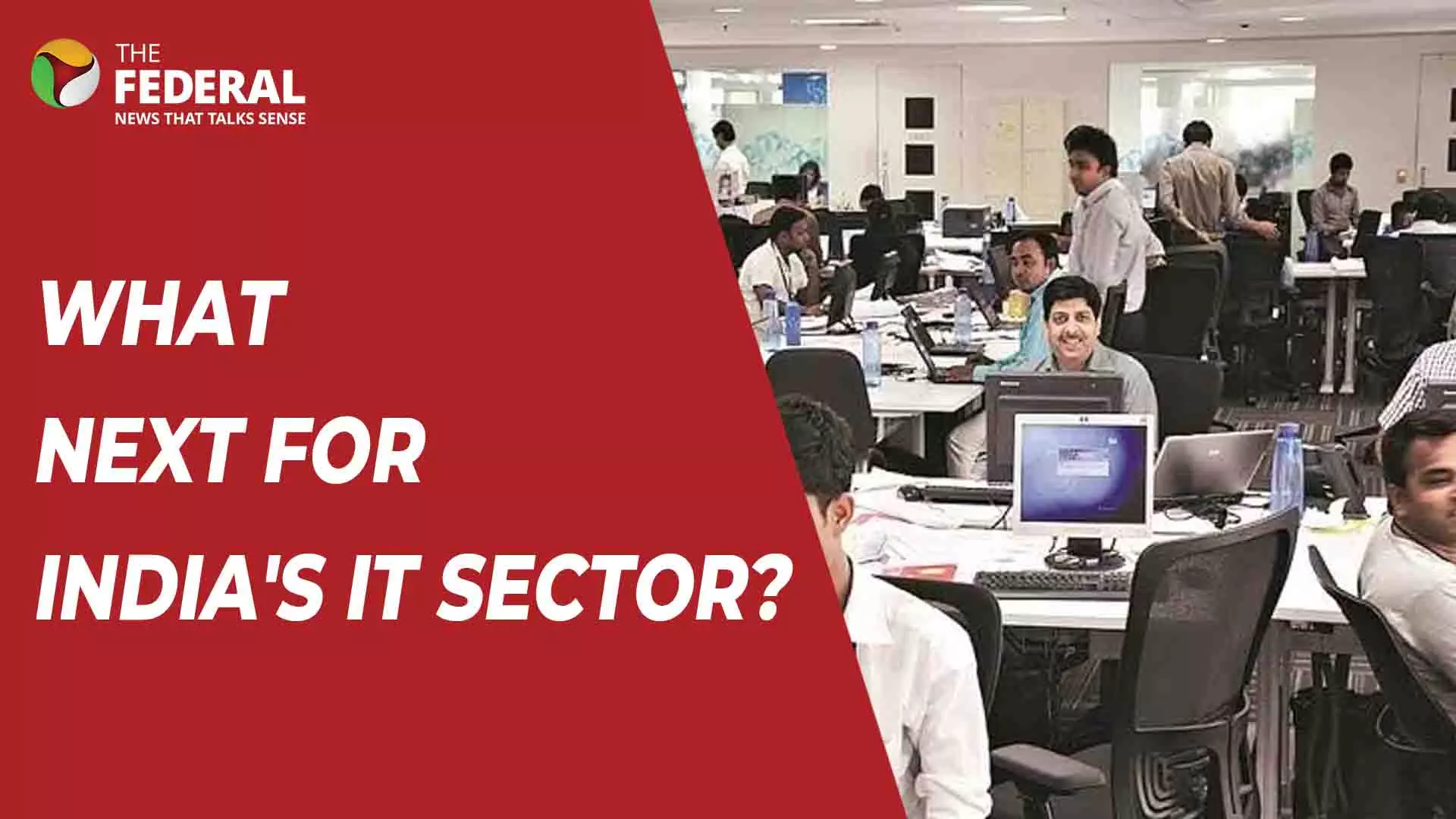
Many companies are localising their workforce and opening near-shore centers in the US
H1B visa confusion: Uncertainty cloud over IT sector
Potential changes to H1B visa programme, such as raising the minimum salary threshold from $60,000 to $120,000, could significantly alter cost structures for Indian IT firms

TCS reported mixed results for the last quarter, with a 1.1% quarter-on-quarter revenue growth in constant currency terms. However, earnings before profits declined by 60 basis points, and the absence of mega deals capped overall performance. Total deal value stood at $8.6 billion, but challenges in the life sciences sector impacted growth.
“We should also realize that the third quarter is typically a weak period due to festivals and holiday seasons in the US, where 75% of business comes from,” explained Giri Prakash, The Federal’s Business editor. Notably, TCS reduced its hiring by 5,000 employees during this period.
On the other hand, Infosys showed stronger performance, with an 11.5% year-on-year profit growth and sequential revenue growth of nearly 2%. Operating margins stood at 21.3%, leading Infosys to revise its revenue guidance for FY 2025 to 4.5-5% on a constant currency basis, higher than its previous estimate.
Implications for the IT Sector
Both companies demonstrated resilience despite global economic uncertainties. The demand for digital transformation and AI capabilities remains strong, and operational efficiency has become a key focus area for navigating turbulent times.
Also Read: Days after backing H-1B visa, Musk says system ‘broken’, needs reforms
However, the sector’s reliance on the North American market leaves it vulnerable to policy shifts. “Going forward, global economic uncertainty could test the adaptability of even the biggest players in the IT industry,” Giri Prakash said.
The H1B Visa conundrum
The H1B visa program’s future remains uncertain under Trump’s leadership. While Trump’s campaign rhetoric emphasized reducing reliance on migrant workers, recent advocacy by Musk underscores the importance of skilled talent for maintaining US competitiveness.
“The MAGA movement opposes migrant workers, but the shortage of skilled labour has forced even Trump’s allies to reconsider their stance,” said Prakash. Despite internal divisions within the Republican Party, American corporations continue to highlight the necessity of foreign talent.
Potential changes to the H1B visa programme, such as raising the minimum salary threshold from $60,000 to $120,000, could significantly alter cost structures for Indian IT firms. This could reduce profitability on US projects and impact overall financial performance.
To mitigate these risks, companies are localizing their workforce and opening near-shore centers in the US. Industry leaders remain cautiously optimistic about sustaining growth despite policy headwinds.
Also Read: Trump's new H1B visa restrictions may affect 2,40,000 people: Report
The Indian IT industry faces a dual challenge: addressing short-term uncertainties while preparing for long-term transformations. TCS and Infosys’ results underline the sector’s adaptability, while the evolving H1B visa policies highlight the complexities of global business dynamics. As Prakash concluded, “The ability to navigate these rough waters will define the sector’s future.”
(The content above has been generated using a fine-tuned AI model. To ensure accuracy, quality, and editorial integrity, we employ a Human-In-The-Loop (HITL) process. While AI assists in creating the initial draft, our experienced editorial team carefully reviews, edits, and refines the content before publication. At The Federal, we combine the efficiency of AI with the expertise of human editors to deliver reliable and insightful journalism)

